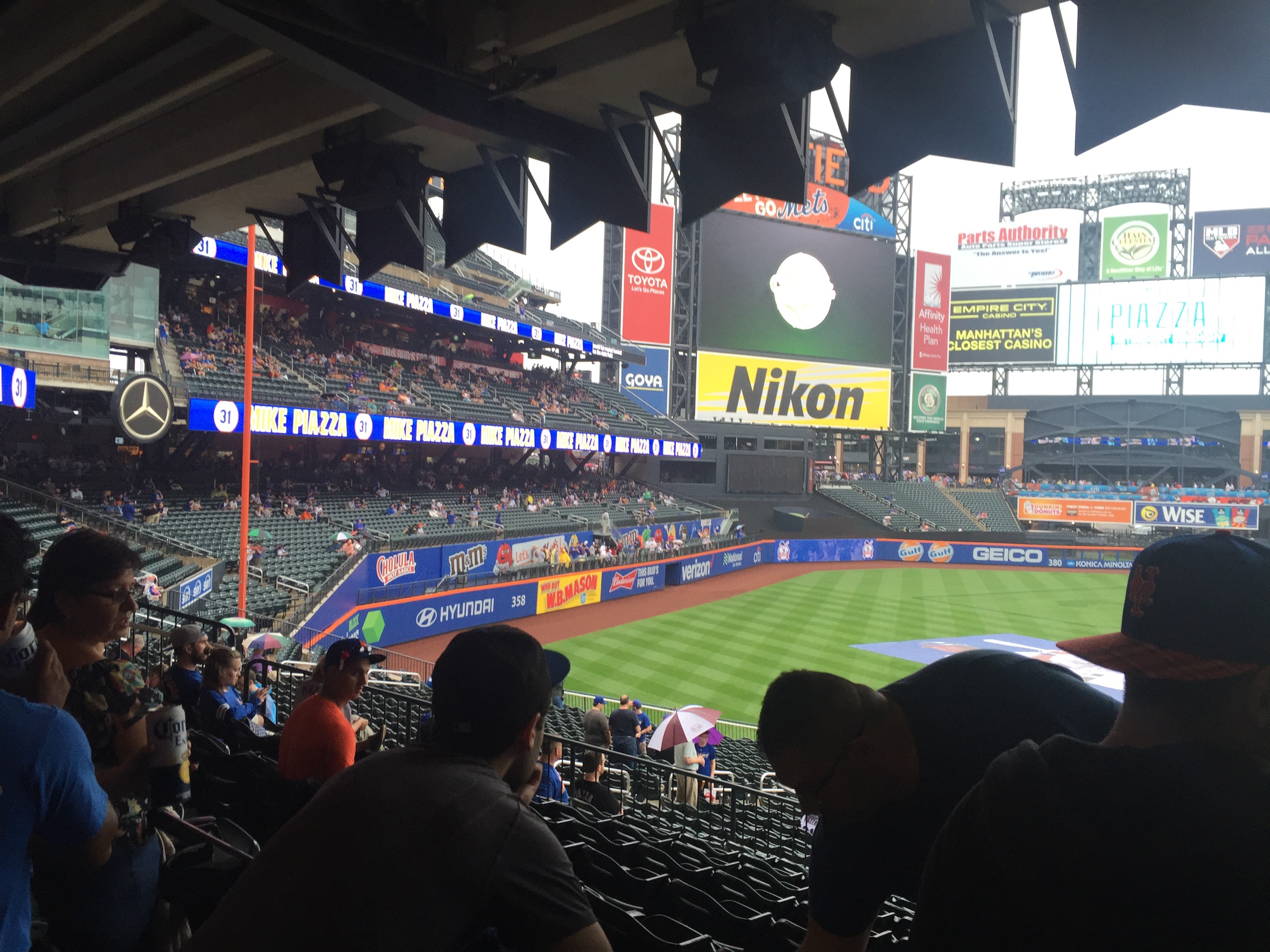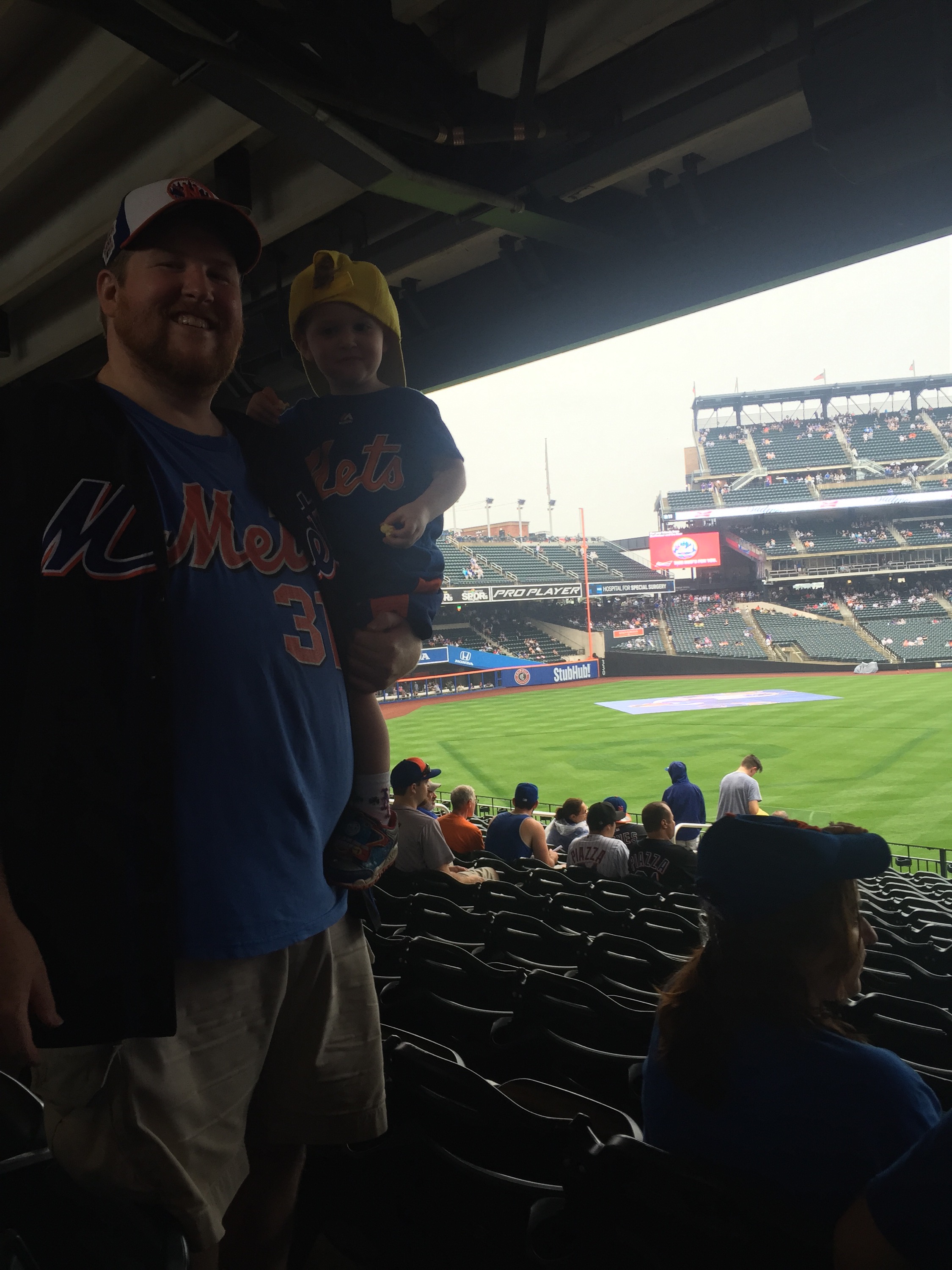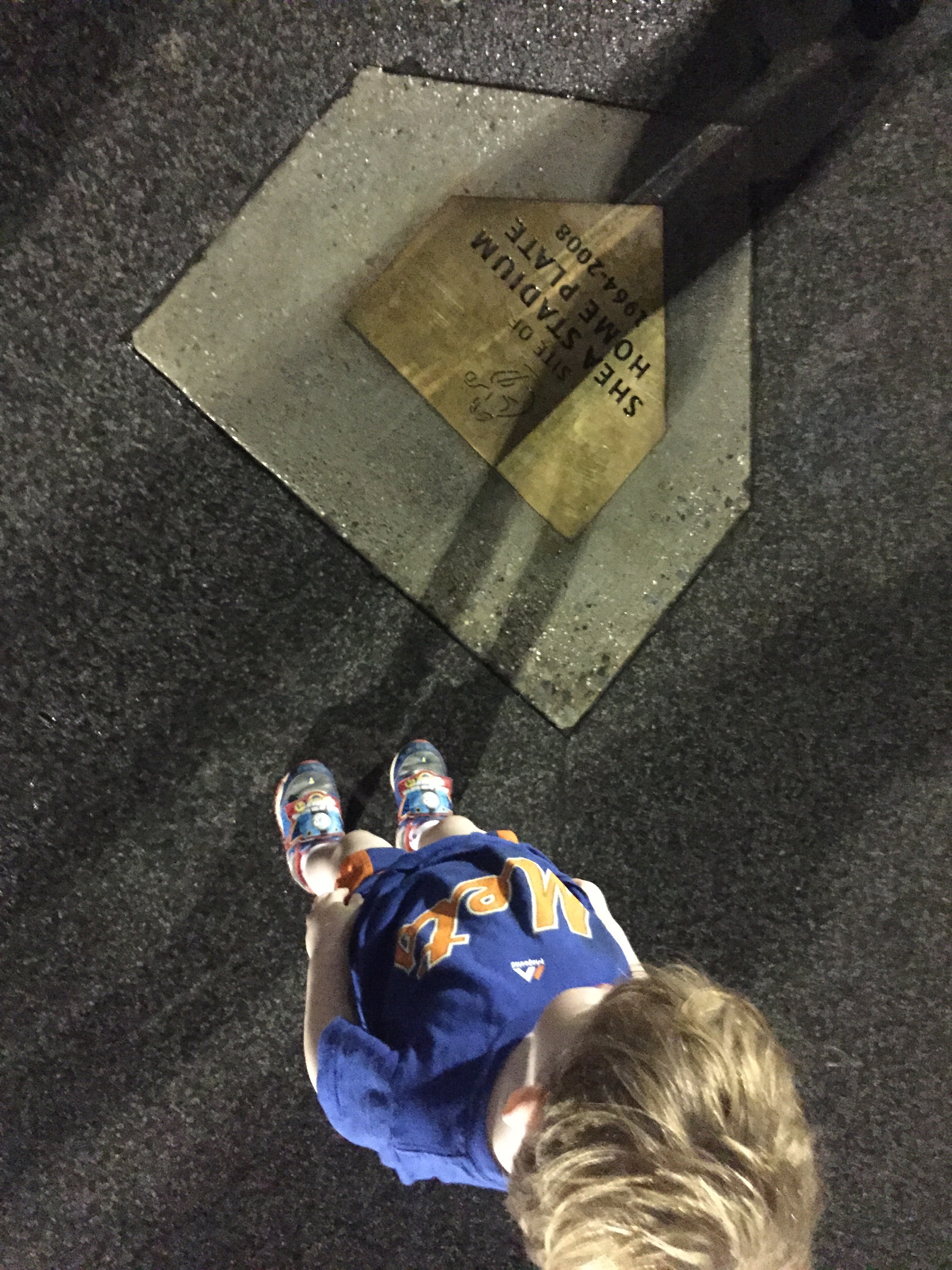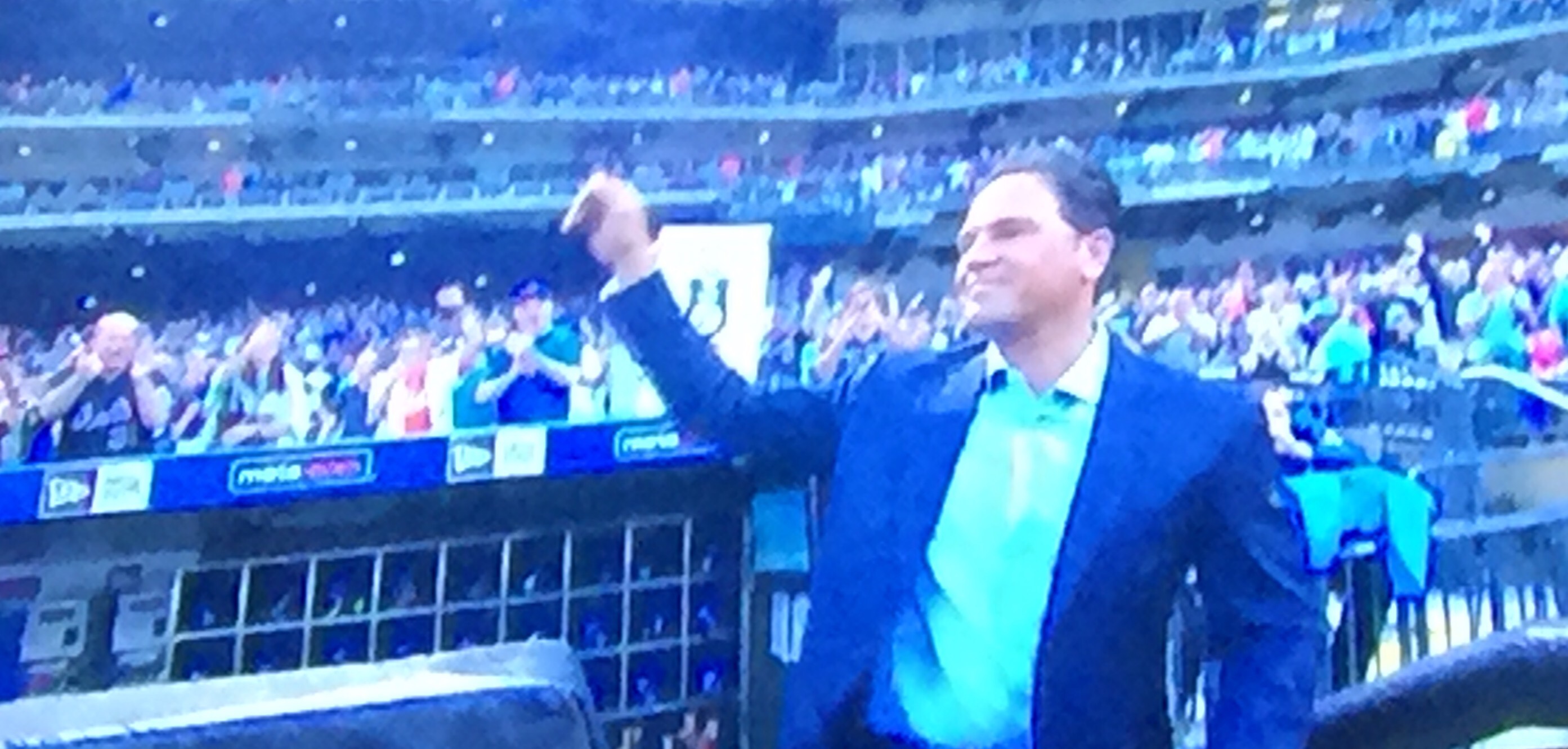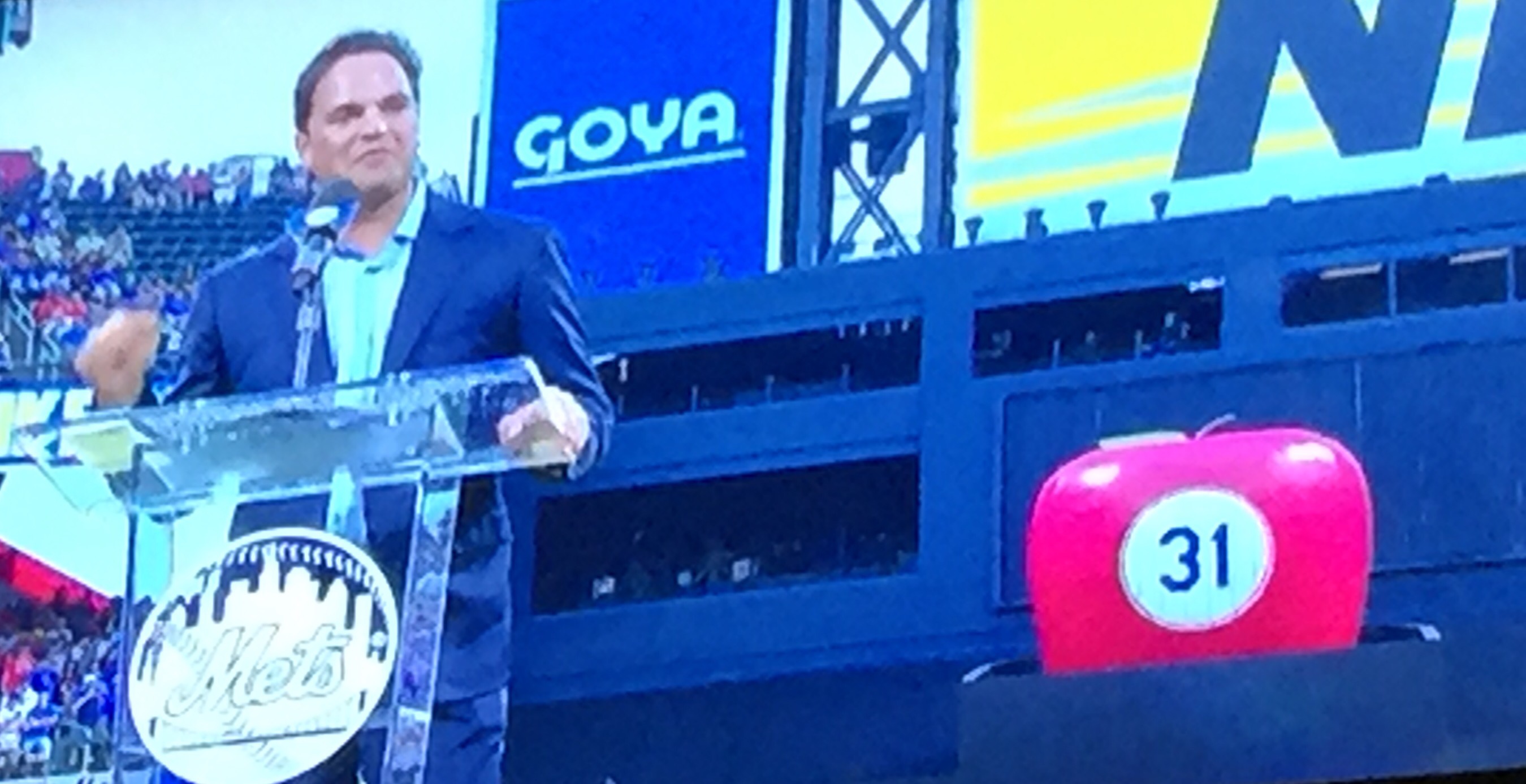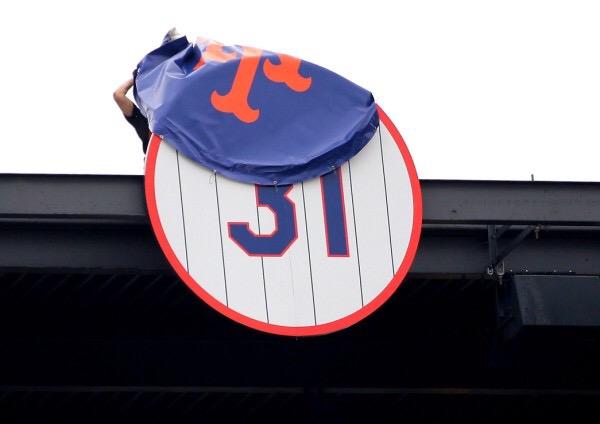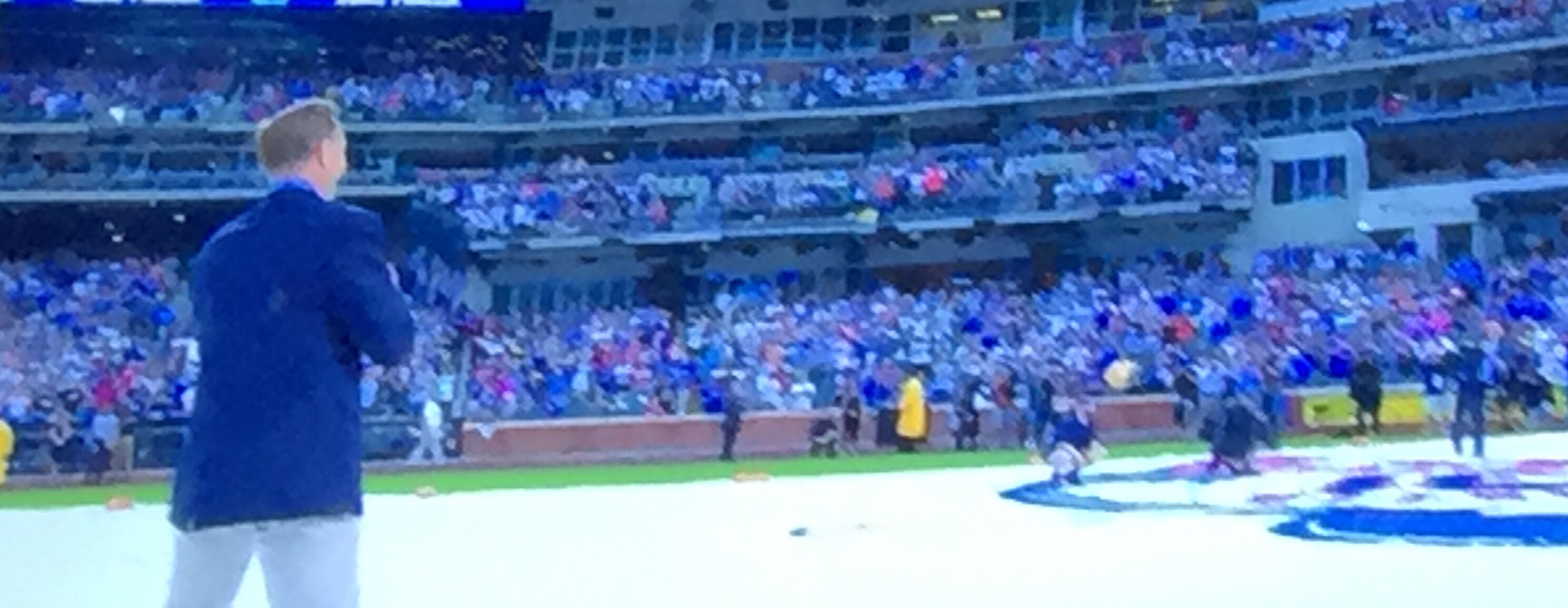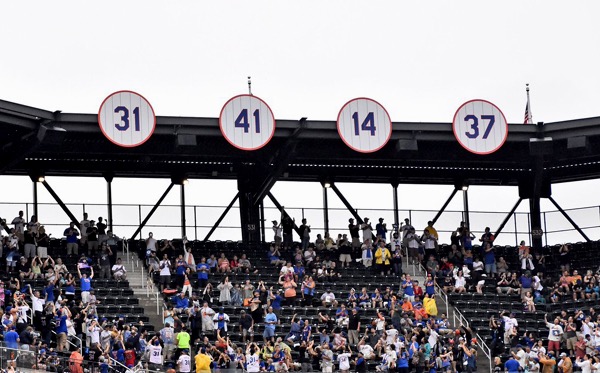Cliff Floyd
Right now, if you were going to list what the Mets problems were, two things that would be discussed ad nauseaum would be the offense and hitting with runners in scoring position. While it has not been discussed as frequently, Yoenis Cespedes‘ and Juan Lagares‘ injuries also make center field an issue for the Mets.
The Mets acquisition of Jay Bruce presumably solves the first two Mets problems while only further confounding the center field issue.
First, the offense. There is no doubt that Jay Bruce is your classic left-handed slugger that should be hitting in an RBI position in your lineup. This year Bruce is hitting .265/.316/.559 with 22 doubles, six triples, 25 homers, and a major league leading 80 RBI. He also isn’t a Great American Ballpark creation as Bruce has hit better on the road. In road games, Bruce has slashed .277/.318/.582. More importantly to Mets fans, Bruce is hitting .360/.406/.719 with runners in scoring position. Ideally, the Mets would bat him fifth in the lineup as Bruce has been hitting .290/.340/.603 from that spot in the order.
Still, there is some cause for concern with Bruce. As we see with his stats, he is not nor has he ever been a great on base guy. He is also a guy who is a platoon type of bat as he is hitting .250/.287/.491 off of lefties this year. With that in mind, the Mets might have just added a player that is more of the same.
He is also coming off two straight seasons that saw him hit a combined .222/.288/.406 while averaging 22 homers and 76 RBI. If his July, where he hit .218/.289/.529, is any indication, he might be becoming that type of player again. Furthermore, Bruce has not hit well at all in Citi Field. In 21 games, Bruce has hit .186/.275/.443 with five homers and 13 RBI. Hopefully, some of that is a short sample size and some of that is Matt Harvey, Jacob deGrom, and Noah Syndergaard.
Regardless, Bruce is an offensive upgrade for an injured and under-performing Mets team. However, he is not a defensive upgrade for a team that needs a center field solution.
If reports are true, Bruce is being brought here to play right field rather than to play first base in place of James Loney. That would shift Granderson from right to center. As we saw in the one game Granderson played in center this year, there is a reason why he has not played center regularly since 2012. The other issue is that while Granderson has had a down year defensively in right field, he has been much better than Bruce, who has posted a -11.5 UZR and a -13 DRS this past year. Over the previous two seasons, Bruce has averaged a -5.2 UZR and a -1 DRS meaning he is worse this year than he has been over his career.
With Bruce’s struggles, Granderson’s inability to play center, and Yoenis Cespedes playing on one leg, this outfield should be reminiscent, if not worse, than the Cliff Floyd–Roger Cedeno–Jeromy Burnitz outfield that was seen as an unmitigated disaster defensively.
The other issue is where does this leave Michael Conforto? After everything that has happened this year, are the Mets really going to make him a bench player? Is he going to platoon with another left-handed batter? Does he move to first base? Aren’t you now forced to send him down to AAA until September call-ups? This really leaves your best young hitter and future of your team in a lurch. With all that in mind, it is a very curious move, especially when there was no corresponding move to address any of the Mets other needs.
Overall, Bruce solves some of the Mets problems while exacerbating some others. The best way to deal with all of these issues is for both he and his new teammates to just go out there and hit.
At the end of the 2014 season, Modells had a sale to clear out some of their baseball inventory. As luck would have it, there was a children’s David Wright jersey on sale for $15. As I left Modells that way, Wright jersey in hand, I never imagined my son may not have an opportunity to wear the jersey.
At the conclusion of the 2012 season, with free agency on the horizon, Wright had signed a seven year deal that effectively was going to make him a Met for life. When his contract expired, Wright was going to be the all-time leader in nearly every offensive category there was. At this time, Wright was really transitioning from the young superstar Cliff Floyd took under his wing to the mentor of a new crop of Mets players he was going to lead to the World Series. It was his destiny much in the way that it was the destiny for Dwight Gooden and Darryl Strawberry in the 80’s. As we saw with Doc and Darryl, life gets in the way. The things outside baseball can take everything from you.
For Doc and Darryl, it was substance abuse. Both of them have missed out on the Hall of Fame, and God knows what else, because of these issues. It may not have robbed them of their careers, but it did rob them of their greatness. It robbed them of their seemingly assured path to Cooperstown.
For Wright, his body is failing him. While Wright has lost some time and some great seasons to injuries, no one expected the spinal stenosis. The spinal stenosis has robbed him of his ability to truly be an everyday player. It may have robbed him of his chance to put up the numbers he needed to get inducted into the Hall of Fame. However, through almost sheer grit and determination, Wright wasn’t going to let the spinal stenosis rob him of his chance to win the World Series. Seeing Wright play this year was to be all the most impressed and amazed with him. No, he wasn’t the Wright of old. No one expected that. Instead, he was an effective major league player. He was hitting .226/.350/.438 with a 115 OPS+. He had eight doubles and seven home runs. More impressively, he homered in each of his last three games.
There was almost a certain beauty to what Wright was doing. He was taking everything he had, and he was willing himself to be great again. He was able to combine his experience with what physical tools he still had to be an effective to very good major league third baseman. While many feared he might be a drain on the Mets, he actually proved to be one of their better everyday players.
Then, because life is not fair, disaster struck yet again.
In addition to Wright’s spinal stenosis, he is now dealing with a herniated disc in his neck. Initially, he wanted no part of surgery. He wanted to return this year. He wanted to help the Mets win the World Series. He wanted to hit another home run at Citi Field. He earned that right, and he was going to do everything he could do to experience it this year. As we learned yesterday, the chances of Wright’s return became all the more remote. Yes, he still wants to rehab and try to avoid the surgery in his neck. However, almost tellingly, Wright is now speaking with doctors about certain surgical options. A surgery on his neck would almost assuredly end his 2016 season. After that, who knows?
Now, as we saw last year and this year with Wright, we can never count him out. He is going to do what he can to be on that field to lead the Mets to the World Series. There is still hope he can return. He should return. He deserves to leave that field not just with a World Series, but on his own power. He should be able to make his own decision. It shouldn’t be forced upon him. However, the more time passes, the more you question if that is going to happen. Sometimes baseball can be cruel, and right now it is being about as cruel as it can get for David Wright.
Whenever Wright’s career is over, he will have retired as the greatest homegrown Met’s position player. He will be the greatest Met to spend his entire career with the team. As time progresses, Mets fans will talk about him in the way that Yankee fans talk about Don Mattingly, which would be all the more fitting as both players had their Hall of Fame chances and their careers taken away from them due to back injuries.
Selfishly, I just want Wright to hold on just a little longer. I want to see him win that World Series. I want my son to have some David Wright memories of his own. I want him to be able to wear his David Wright jersey to something other than David Wright Day.
Last year during the Matt Harvey drama over his agent’s push for the Mets to adhere to the supposed agreed upon innings limits, Harvey was put in a tough spot, and he didn’t handle it well. He certainly wasn’t helped by his Captain, David Wright. Wright responded to the drama publicly snubbing Harvey.
Harvey made a massive and inexcusable mistake by missing the last practice before the beginning of the NLDS. Wright responded to the situation by saying he was only concerned with the Mets who were at practice.
During Spring Training, when Harvey was going through some serious medical issues. The end result was Harvey was alright, and he was the subject to unnecessary ridicule. Harvey responded with a media boycott. In response to the situation, Wright cracked jokes with the media about the boycott.
Harvey just had another misstep with the media and his teammates. After another bad start, Harvey bolted leaving his teammates to face to media. It’s one thing to boycott the media after unnecessary and unfair coverage. It’s a whole other thing to not to speak to the media leaving your teammates to answer for your problems. Kevin Plawecki was left to answer the same questions he’s been answering after every Harvey start he’s caught. Unfortunately, Plawecki was seemingly the only guy left to answer questions about Harvey’s start.
Wright has now spoken up about Harvey’s most recent behavior. As he told Mike Puma of the New York Post, “A lot of us don’t agree with what he did, but we all take this game personally, and when we don’t play at the level we’re accustomed to, sometimes we make decisions we regret.”
Wright noted Harvey wasn’t accountable saying, “All of us like coming in here and talking when we have a good games, and a few of us, myself included, enjoy coming in here and talking when we don’t play well. Accountability is big and I think [Harvey] just had a bit of a lapse in judgment.”
Wright further elaborated on these comments by saying, “Him, the stature he’s built, the last thing you want . . . you want to be known as an accountable player. You want to be a stand-up guy, and this is a little blip on the radar screen. Hopefully, we all learn from it and don’t make the same mistake again.”
Wright’s comments are understandable. It’s apparent Harvey’s teammates were irked by his actions. He broke a code, and he put his teammates in a very difficult spot. There’s no excusing what Harvey did. With that said, Wright broke the code as well. He went public with his criticism of a teammate. Yes, his comments were relatively mild. However, he did call Harvey out in the media instead of keeping it in the clubhouse. Perhaps, it was because Harvey wasn’t in the clubhouse.
Through the past year, Harvey has seemed like he’s been a difficult teammate. That must be really frustrating for an old school player like Wright. It must be doubly frustrating for a player like Wright who was showed how to comport himself as a professional on and off the field by great teammates and people like Cliff Floyd and Carlos Beltran. It’s no wonder Wright has allowed this frustrations with Harvey to come out in the media.
It’s reminiscent of how cold Derek Jeter acted towards Alex Rodriguez. Jeter never came to A-Rod’s aide the way he did other teammates. The classic example given was how Jeter implored Yankee fans to stop booing Jason Giambi, but he wouldn’t extend the same courtesy to A-Rod. When it came to A-Rod, he suggested that even he, Derek Jeter, couldn’t control the fans reaction. Jeter had a chance to make things easier for A-Rod publicly like he once did with Giambi. For reasons we are all still not fully aware, Jeter chose to leave A-Rod out to dry.
It’s how Wright has been with Harvey over the past year. Wright hasn’t been as public with criticism of his other teammates. Perhaps it’s because the other Mets players don’t create the same attention Harvey does. Perhaps it’s because the other Mets players do not act the way Harvey does on and off the field. Whatever the case, Wright has been harder on Harvey than anyone else (with the possible exception of Jenrry Mejia). Whatever the case may be Wright has reacted towards Harvey the way Jeter reacted towards A-Rod.
It’s pretty ironic. Harvey grew up wanting to be Jeter. Instead he’s A-Rod, and he’s receiving the Jeter treatment.
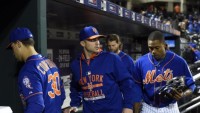
It is surreal to think it was only 12 years ago that David Wright was walking into Mike Piazza‘s clubhouse. Now, with Piazza being retired, it’s now Piazza’s turn to walk into Wright’s clubhouse:
For the Twitter folks: David Wright welcomes Mike Piazza to #Mets camp on Sunday morning: pic.twitter.com/Yq9k7jLkxz
— Adam Rubin (@AdamRubinMedia) February 28, 2016
Back then, everyone on the team knew how good Wright was going to be. They saw him as their best chance of ever winning a World Series. They all took him under their wing.
Piazza mentored Wright how to handle New York and how he should listen to his body. In he following Spring Training, Carlos Beltran took Wright with him for extra workouts to show him the type of off-the-field work is needed to succeed in the major leagues. Cliff Floyd took him under his wing. Not only did he have Wright carry his luggage, he also showed him how to be a big leaguer.
It’s now Wright’s turn to return the favor. Seeing the Noah Syndergaard lunch incident last Spring, he appears ready, willing, and able. Now, it worked with Syndergaard because he was a player that wanted to get better.
There are still plenty of young Mets players who could learn a lot from Wright. Each of these players should be glued to Wright’s hip learning as much as they possibly can from him. Like Piazza, Beltran, and Floyd, Wright can teach these players how to handle New York, how to listen to your body, how to prepare for a season, and how to be a big leaguer. The one player who j think can most benefit right now from Wright’s wisdom is Michael Conforto.
Conforto is in the same spot Wright once was. He’s on a team with great players. Success in the majors seemingly came easy to him in his first half season. If the Mets do anything going forward, it’s going to be his bat that’s going to be a big part of it. He’s also still young with a lot to learn.
Like David Wright all those years ago, we all see greatness in Michael Conforto. Wright should be helping Conforto prepare himself not just for this season, but for his entire career. Helping Conforto could be the key to Wright getting that elusive World Series ring. Listening to Wright could be the key to Conforto having a long and successful Mets career. They need each other.
Who knows? Maybe 12 years from now, we will get to see Conforto welcoming a retired Wright into his clubhouse.
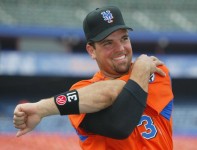
There have been some irresponsible opinions that Mike Piazza‘s election to the Hall of Fame means it will pave the way for known steroid users to be elected to the Hall of Fame. This premise contains one potential logic fallacy. It presupposes Piazza used steroids. Did he?
Let’s start with the case against him. There are no reports, investigations, or tests linking him to steroids. The case against him boils down to rumor, innuendo, and skin problems. We have no statements from teammates, clubhouse workers, or anyone else who may have any link to Piazza establishing he used steroids. So that makes me question how do you counteract rumors and innuendo? Facts don’t work. Piazza’s denials haven’t worked. Overall, the only way to combat rumors and inneundo is to present what people will actually say in public about a person.
Cliff Floyd was a teammate of Piazza from 2003 – 2005. Floyd is an analyst all over the place from MLB Radio, MLB Network, and SNY. Here’s his opinion on steroid users and the Hall of Fame:
https://mobile.twitter.com/mlbnetworkradio/status/684848408364998656
Floyd doesn’t want steroid users in the Hall of Fame. Here’s how he reacted when Mike Piazza was elected:
@mikepiazza31 Congrats big fella…well deserved-glad I could be a part of your journey! #HOF
— cliff floyd (@CliffFloyd30) January 6, 2016
Floyd didn’t choose to ignore Piazza’s election. He didn’t condemn the choice. He celebrated Piazza’s induction. Floyd shared a clubhouse with Piazza for three years. If anyone would know he used steroids, it was Floyd. However, there were no accusations from him. Just congratulations. From this it is apparent that Cliff Floyd does not believe his former teammate used steroids.
I already know the rebuttal. Steroid testing in baseball began in 2003. Of course Floyd saw nothing. This rebuttal doesn’t take into account that no teammate has ever spoken about Piazza using steroids. Unfortunately, that hasn’t been good enough thus far. To that, my next example is Al Leiter.
Like Floyd, Leiter is all over the place covering baseball. Leiter was Piazza’s teammate from 1998 – 2004. They played together a long time, and Leiter threw to Piazza more than any other catcher. Here was Leiter’s ballot on MLB Network:
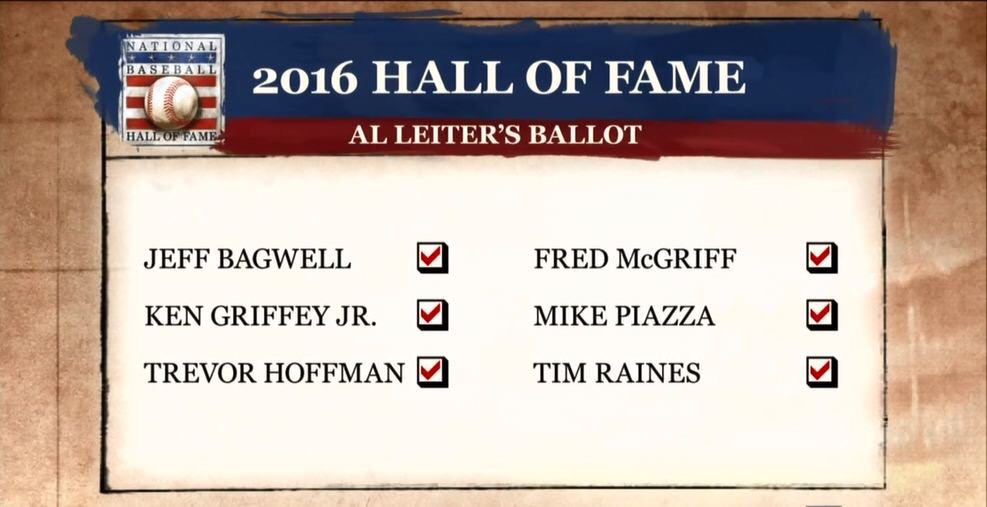
It should first be noted Leiter doesn’t actually have a ballot. The above photo from MLB Network shows how he would have voted if he had a vote.
Note, there’s no Barry Bonds or Roger Clemens on the ballot. Leiter didn’t vote for two people who have been linked to steroids use during their careers. These are two people who would’ve been elected but for their steroid use. Leiter didn’t vote for people who we know from various sources that used steroids. Yet, Leiter voted for Piazza. Other than Piazza himself, who would know better than Leiter if Piazza used steroids?
If teammates like Leiter and Floyd don’t link Piazza to steroid use, how can anyone else? If we’re going by word of mouth or rumor, shouldn’t we at least take into account the opinions of Piazza’s teammates? These are people who have put their name out there and have separated Piazza from the group of known steroid users. They now are now members of the media and are staking their reputations if it ever came out that Piazza used steroids. I find it hard to believe there is a massive Mets cover up afoot; a coverup which includes each and every player and former player.
Isn’t this substantive proof that Piazza DID NOT use steroids? Isn’t this more than what has been presented by anyone as a factual basis to prove Piazza used steroids? Why doesn’t anyone ever discuss this aspect of whether or not someone used steroids? It seems the people saying Piazza used steroids are the ones that didn’t play the game. They weren’t the ones in the Mets locker room. Somehow, we’re supposed to believe they know more about Piazza than people who were with him every day from February to early October. It doesn’t add up.
Therefore, using the same “standard of proof” others have used, it is conclusive Piazza didn’t use steroids.
Editor’s Note: This article was originally published on metsmerizedonline.com
